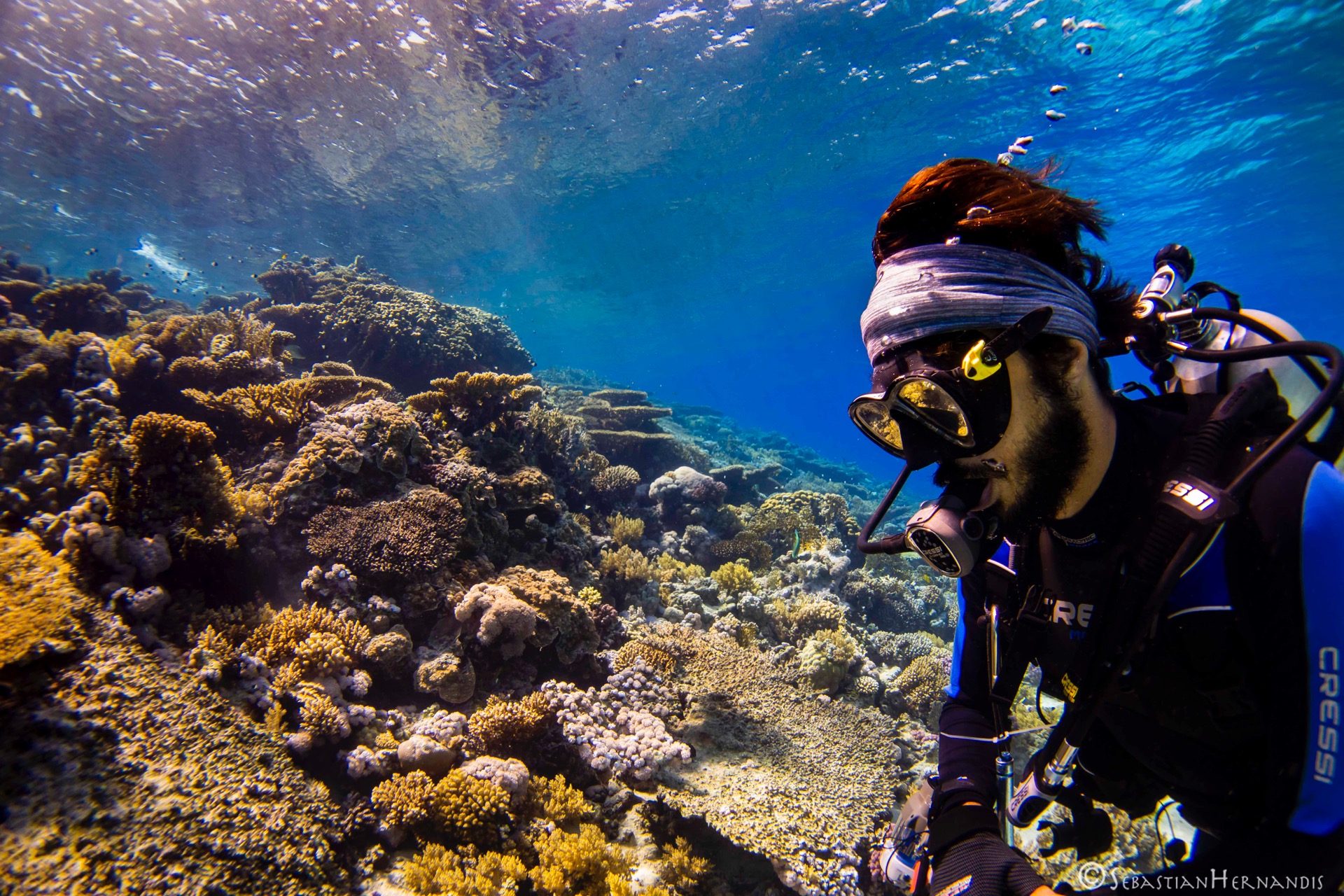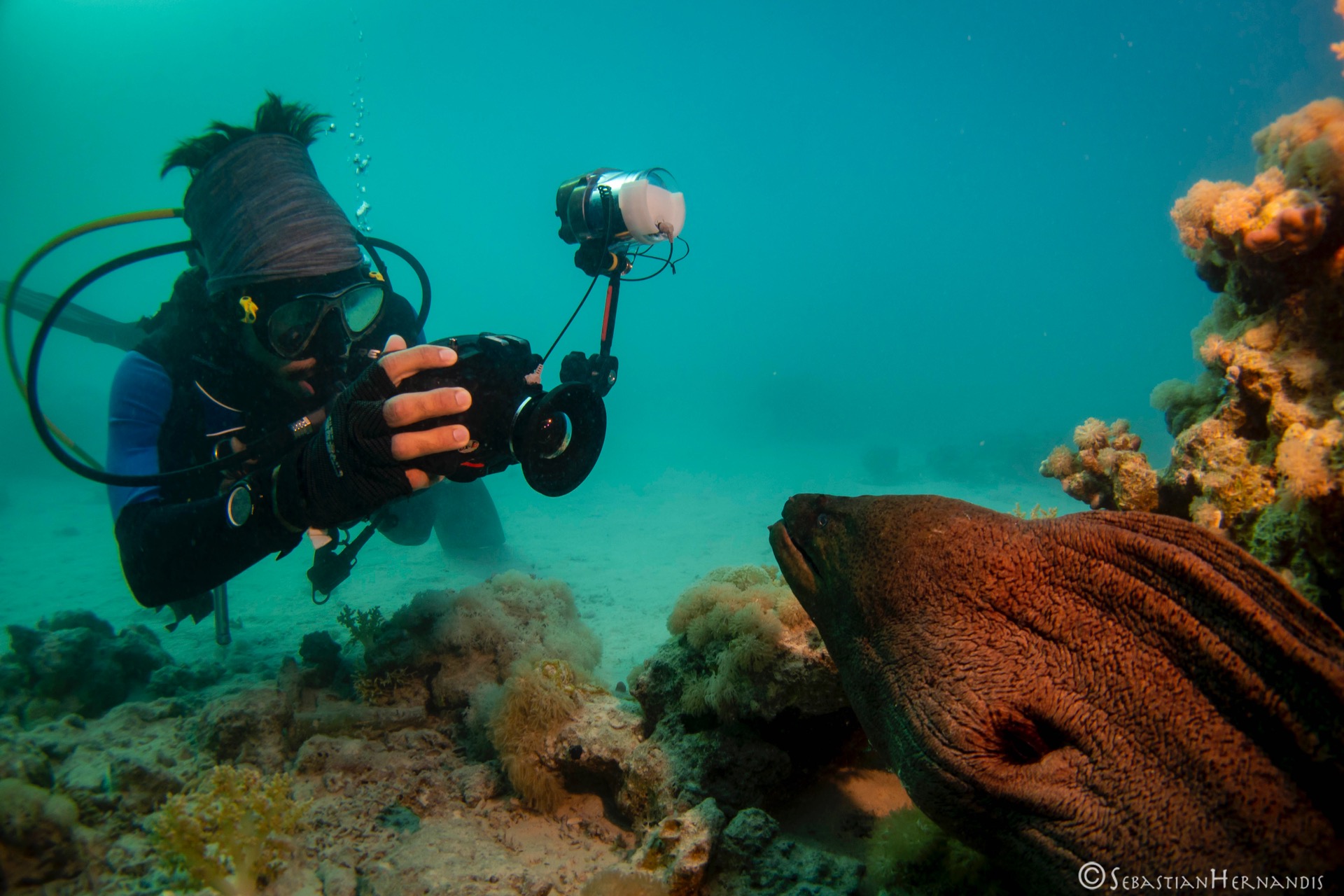Graduated in marine science in 2015, Sebastián Hernandis coursed a Master's Degree in Assessment and Environmental Monitoring of Marine and Coastal Ecosystems in the Polytechnic University of Valencia (2017-2018). After the MSc, he developed his PhD in The Institute of Environment and Marine Science Research IMEDMAR-UCV (2018-2021), defending his thesis "Avances en la ecología y biología para la conservación de la especie críticamente amenazada Pinna nobilis (Linnaeus, 1758), endemismo mediterráneo", in July 22, 2021, obtaining a Cum Laude distinction.
He has been working for six years (2015-2021) in the IMEDMAR-UCV. His wide experience covers both field and laboratory work. In the laboratory, he has been responsible for the maintenance and design of the installations for bivalve captivity in the IMEDMAR-UCV, including two aquaculture chambers for the maintenance of Pinnids in closed circuits and a chamber for microalgae production. He has been also the main responsible for the adaptation of the energetic-physiology method Scope for Growth (SFG) in Pinna spp., using the electronic particle counter Coulter-Multisizer III. He also carried out several eco-physiological works in bivalves and studies of gonadal maturation in P. nobilis. In the field, Sebastián Hernandis has a large experience as a scientific diver, leading and executing sampling campaigns. These works comprehend the monitoring of marine phanerogams, fish census, population studies of benthic invertebrates, extraction and manipulation of endangered species, ecological studies and monitoring of hard substrates in port environments, installation and manipulation of oceanographic equipment, biological and sediment sampling and the monitoring of oceanographic data. Besides, he has completed his formation as a researcher with several courses and studies for data analysis using R.
During this period, he realized different internships in international institutions, two weeks at the Royal Netherlands Institute for Sea Research (NIOZ) for the physiological study of gaping activity in P. nobilis and Artica Islandica and 40 days at the Institut Océanographique Paul Ricard in France and two weeks in the Institute of Marine Biology de Kotor in Montenegro for the monitoring of P. nobilis populations and P. oceanica meadows. Also in national institutions, two weeks each of the two internships at the Institute of Agrifood Research and Technology (IRTA) for the monitoring of P. nobilis population and studies in its maintenance in captivity and reproductive cycle and 10 months (divided into different periods) in the Centro Oceanográfico IEO-CSIC from San Pedro del Pinatar for the study of the energetic physiology of the bivalves P. nobilis y P. rudis.
In February 2022, he began working in the Centro Oceanográfico IEO-CSIC from San Pedro del Pinatar under the project RemediOS, a project for the seed production of the flat oyster (Ostrea edulis) in the Mar Menor using local broodstock. This project is part of the Mar Menor Oyster Initiative, an initiative with the objective of recovering the flat oyster population to use it in bioremediation actions in the Mar Menor lagoon, affected by a eutrophication process. Under this work line, Sebastián started his postdoctoral position (APOSTD 2022) in October 2022 to continue his research working in bioremediation with natured based solutions (NBS) using bivalves.
For more information, my CV is available here:


